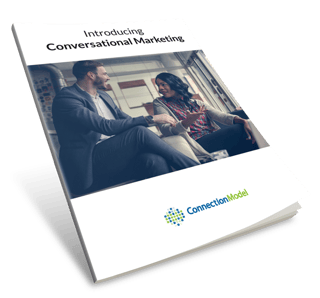 How many emails show up in your inbox each day? Probably close to a hundred (or more) if you're counting both work emails and all of the email newsletters you've somehow become subscribed to (whether it was opting into a lead magnet, making a purchase, attending a webinar, etc.).
How many emails show up in your inbox each day? Probably close to a hundred (or more) if you're counting both work emails and all of the email newsletters you've somehow become subscribed to (whether it was opting into a lead magnet, making a purchase, attending a webinar, etc.).
How many of those email newsletters do you actually read? Maybe about five percent actually catch your eye, but the others go straight to the trash or marked unread.
This is because too many businesses are sending out emails just because they've heard they should, but they're not really putting a lot of thought or focus into what they're sending.
Don't do email marketing just because it's a marketing best practice. Send out email marketing campaigns that are actually going to get opened and read because people want to open and read them. Let's dive into a few tips to improve your email marketing campaigns.
1. Personalize your emails.
Most email marketing platforms allow you to place a merge field into your email that will input the contact's first or last name or even business name so that you can personalize the email. You can do this within the email content, or even within the subject line.
Personalized emails make your contacts feel like you're talking directly to them and increase the chances that they'll actually open and read your email.
Use personalization in other ways, too, like sending out reminders about abandoned carts, location-specific offers, and more.
2. Email new contacts within 24 hours.
The sooner you send content to a new email contact, the more likely they are to open and be engaged readers. If someone downloads a new lead magnet or opts into your signup form on your website, but then they don't hear from you for a month, they might have forgotten that they'd even subscribed and be annoyed with this new email and immediately opt out.
It's a great idea to send a welcome email to new contacts shortly after they've subscribed, welcoming them to your email newsletter, letting them know what to expect and how often, and linking to your sales page or leaving some sort of call-to-action. Enticing them with a discount or promo code is also a great way to thank them for signing up for your newsletter.
 3. Send your emails from a person instead of your company.
3. Send your emails from a person instead of your company.
When people see emails come from [Company] in their inbox, they're automatically guarded, expecting some kind of marketing promotion. If they see an email from someone like [Name] at [Company], it immediately seems more friendly, and they're much more receptive to what you have to say.
Buffer is a great example of a company that does this. Whatever email newsletter of theirs you subscribe to, you will receive emails personalized from someone within that department. Try this within your own company to see if it helps improve your email open rate.
4. Send emails often, but not too often.
It's important for your business to find that sweet spot of how many emails you can send to your audience without annoying them. You want to stay consistent, but you also want to stay top of mind. Sending emails out once a month creates too much space between emails, enough time for someone to forget that they're on your email list. Instead, you should opt for once or twice a week, but no more than daily, for your newsletter frequency.
Consistency is key in everything digital marketing, though, so whatever you choose, just make sure you stick to it. If you're going to aim for once a week, don't let an entire month go by before your email list hears from you again.
5. Write clickable subject lines.
What makes you click on an email in your inbox? Something that creates intrigue, or lets you know that you're going to get something out of opening that email. Try to convey these things in each email that you send out.
Make sure each subject line is clear and easy to understand. Keep them short and sweet so they don't get cut off. Create action-oriented subject lines that make your readers want to click. And, as we mentioned before, include a first name merge field every now and then to really grab their attention.
6. Include one call-to-action.
You don't want your emails to be all over the place. Have one single goal for every email that you send out. Then end it with a clear and eye-catching call-to-action (CTA) button.
Oftentimes, people will scroll your email for eye-grabbing content to see what the gist of it is (so it's good to have visuals and subheadings throughout). Including a large CTA button at the end of your email can catch a few of those scrollers and get them to click-through, even if they didn't read the rest of your email.
Use a fun CTA on the button, too, instead of a "Contact Us" or "Buy Now," use "Let's Chat" or "I Need This" in order to be more fun and engaging.
7. Clean up your contact list.
It's the nature of the platform -- email lists can grow stale. If you've had the same contacts for years, and none have ever converted, you're working with dead leads. Every so often, you want to clean up your list to get rid of contacts that bounce, contacts that never open your emails, and sometimes even contacts who open your emails but have never engaged with them.
This helps you to get rid of deleted email addresses, email addresses that were typed in incorrectly, and dead leads that aren't going to convert. Although the size of your email list might shrink, your open and click rates will improve, proving that the contacts you scrubbed weren't helping your bottom line anyway.
Use these tips to improve your email marketing campaigns. Contact us to learn more about how email marketing can help your business.
Written By: Doug Milnor


